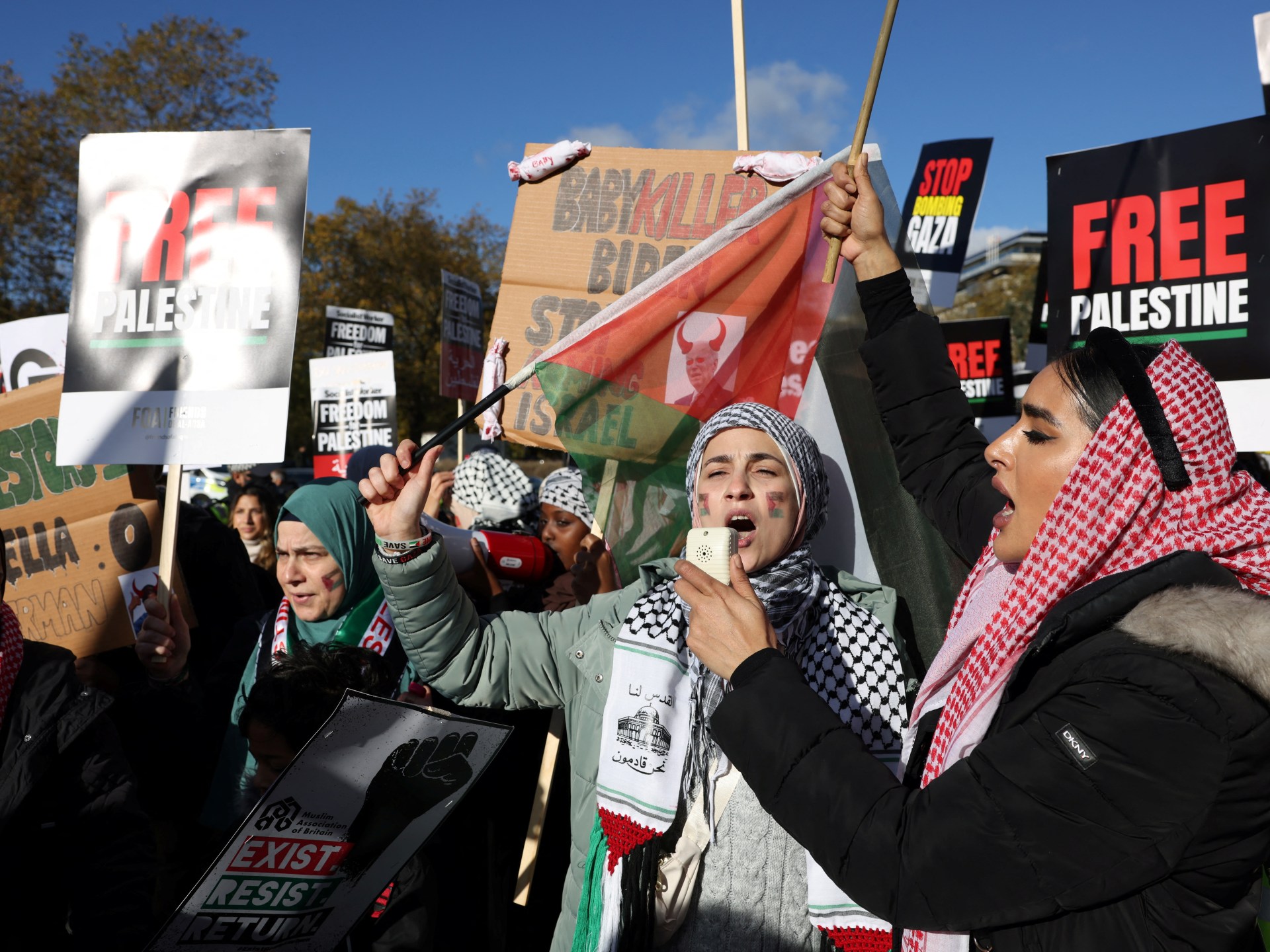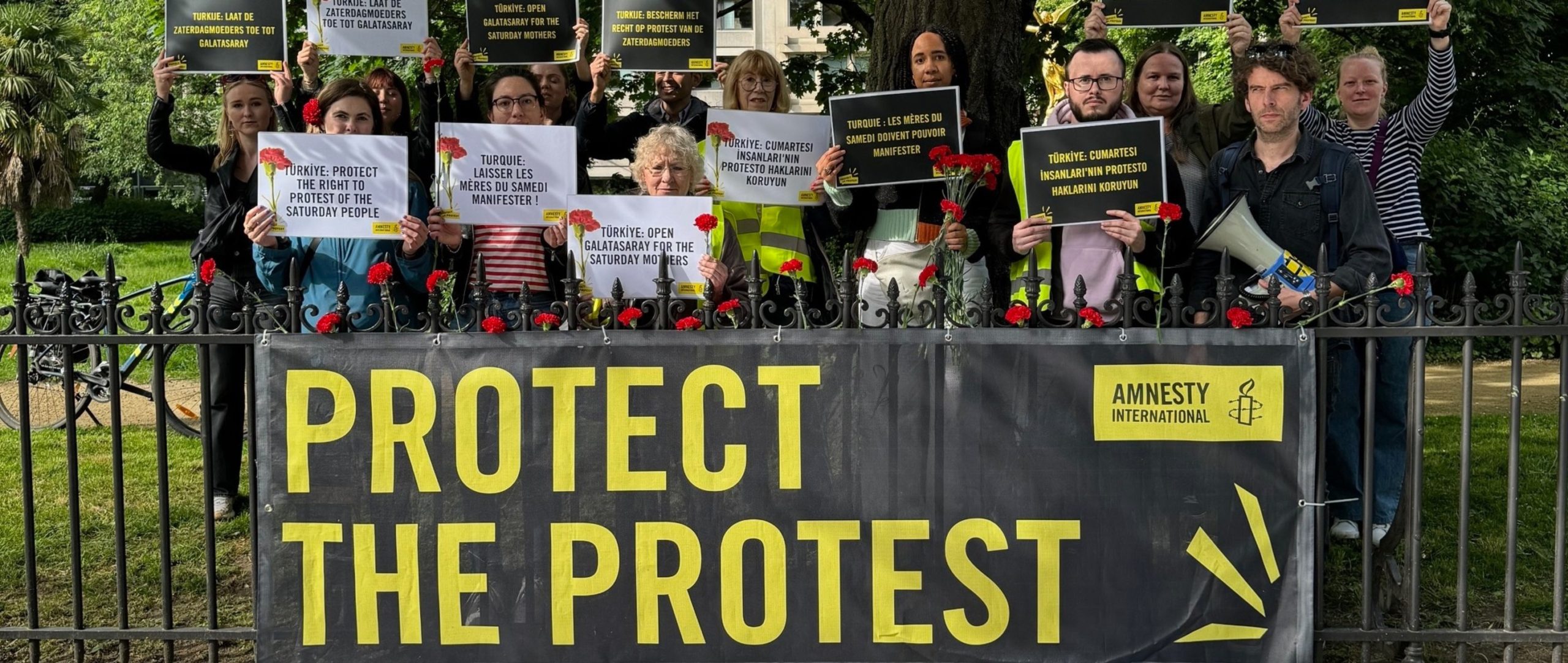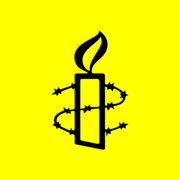OK, it’s time for a deep dive on how Germany is choking pro-Palestine protest. And how other European governments are taking notes. Because if we understand what we’re up against, we’ll be able to confront it.
So in this piece I’ll take you through Germany’s greatest hits of repression — how the system works, why it matters beyond Palestine, and what we can learn. I’ll do it through the stories of three people I interviewed for DiEM25’s YouTube channel, each targeted in a different way: Melanie, Iris, and Hüseyin.
Let’s go. Video version below, and a more detailed article after.
The video version, if you’re that way inclined.
Since October 2023, pro-Palestine activism has done exactly what it should do: demand basic rights for Palestinians, an end to Israel’s slaughter, and accountability for the bastards making it happen. Some of the biggest street mobilisations in years followed — London saw crowds in the hundreds of thousands, and even in Israel itself, mass protests have called for a ceasefire and a hostage deal.

But in Germany, the state’s response to Palestine solidarity has been… creative. The country’s national guilt complex over the Holocaust is pushing it to crazy extremes — spying on organisers and backing whatever Israel does, as its second-biggest arms supplier.
At home it represses; abroad it’s complicit.

See the photo above. This was Berlin, a few weeks ago. Another protest; another video of a cop swinging for someone’s face. This time, the Irish activist Kitty O’Brien was on the receiving end. They were punched twice, nose broken, the bone in their arm snapped so brutally that it’s now being held together by 11 screws. (Berlin police say they’re “investigating” their officer who did it.)
Or take what happened in April 2024, when police shut down the Palestine Congress minutes after it started, cutting the power, disconnecting the livestream. Then they slapped Yanis Varoufakis with a ban on political activity — even over Zoom.
This isn’t random heavy-handedness. It’s a method.
And it travels. France has tried to implement nationwide bans on protests. Dutch police have cleared encampments with batons.
Germany isn’t alone — and on some days it’s not even the worst. But it is distinctive: for the mix of tools it employs: police, courts, finance, and sanctions. And tragically, it’s becoming a template.
Here’s how this playbook works. Let’s start with the case of Melanie.
Melanie Schweizer: Smeared and fired

In December 2024, Melanie was a civil servant, a lawyer working at Germany’s Federal Ministry of Labour.
Then, she posted on her social media that Germany was backing a genocide in Gaza and breaking its own laws.
The right-wing tabloid BILD got wind of it, and splashed her comments across its pages, claiming that she was anti-semitic. And the ministry quickly got rid of her.
Melanie was dismissed and branded, not for breaking any law but for stepping out of line.
I interviewed her in December 2024, right when all this was kicking off. Video below:
Today, Melanie is out of her job, but still campaigning vigorously for Palestine. She ran with our own MeRA25 party in the last German federal election, and is co-organising the latest Gaza flotilla.
The lesson from Melanie’s case is that in today’s Germany, you don’t need to commit a crime to be punished. You just need to post the wrong opinion… and the machinery of the state will do the rest.
Iris Hefets: Detained and cancelled

Now let’s look at Iris. She’s an Israeli Jew living in Germany, a psychoanalyst, and she's also a board member of Jewish Voices For A Just Peace.
In 2023, she was detained in Berlin… for holding up a sign which said:
As a Jew and as an Israeli, stop the genocide in Gaza.
Later, in July 2025, the University of Bremen canceled her lecture because she was a member of a Jewish peace group. And that’s where she is now: still speaking out and still getting canceled.
I spoke with Iris on our livestream on November 2, 2023. Her comments start at 2m29s in:
When even Jewish critics of Israeli policy are branded a danger, you create a permission structure. And once that structure exists, it scales.
Which takes us to the case of Hüseyin.
Hüseyin Doğru: Sanctioned and silenced

Hüseyin is a Berlin-based journalist. In May 2025, the EU sanctioned him. Without a court, without a trial.
What does it mean to be ‘sanctioned’? Well, in one swoop they froze his bank accounts. Meaning he can’t buy anything, and he can’t be paid for anything. They also banned him from traveling.
Sit with that for a second. The European Union turned one of its citizens into a non-person… just like that.
What was their reason? You guessed it. Hüseyin reported on Germany’s repression of Palestine activism, and criticised Israel’s action online.
Hüseyin later published the EU’s “evidence” against him, which they were forced to release because his lawyers pressed them. One of the tweets they cite is simply Hüseyin saying that the German media are ignoring his case.
So this is the model: administrative punishment under the guise of ‘safety’, for speech that the state dislikes.
I spoke to Hüseyin with Yanis Varoufakis in June 2025. Video below.
As of writing, Hüseyin’s accounts are still frozen. And the EU Council has rejected his lawyer’s request to reconsider the sanctions against him.
What this pattern shows: Germany’s playbook
Put these three cases together and a pattern emerges:
- At the street level: police use force against Palestine solidarity. Like the Kitty O’Brien case; the repeated crackdowns on protest in summer 2025; and months of heavy-handed policing since 2023.
- At the institutional level: they use bans and cancellations. Like shutting down the Palestine Congress, banning Yanis Varoufakis from speaking, cancellations at universities and cultural events. And Jewish organisations being financially squeezed, their bank accounts frozen.
- At the administrative, legal level: they use deportations and sanctions against dissenters, and restrictions on slogans and protest permits. And now, as in the case of Hüseyin, an EU level mechanism that can be used against any citizen without any court at all.
Amnesty International calls this “a sweeping pattern in Europe”: stigmatisation, criminalisation, and disproportionate force against peaceful protest. Germany is leading it… and exporting it.

Typically, it’s sold to the public as fighting hate or maintaining order. But in practice, it’s just about stifling dissent. It’s pure authoritarianism, designed to shield Israel from accountability, and to protect the politicians, arms dealers, and institutions in Germany that bankroll and enable it.
And now, this repression is being aimed at Jewish critics and working journalists too.
That’s why Germany matters. Not because it’s the worst, but because it’s the template.
If you live in Germany or anywhere in the EU, this isn’t someone else’s problem. Even if Palestine isn’t your cause. The same tools used on Melanie, Iris, and Hüseyin, could be used against climate activism, against anti-war protesters, against unions. Against anyone outside the line.
What we can do
The good news is we’re not powerless against this.
- Help the targets: Support any legal defenses or campaigns that push back against extra judicial repression.
- Organise: The other side is well coordinated. They’ve got police, ministries, the media. We need to be more so. (For a start, check out my website with 120+ articles and case studies on how to organiser smarter. And subscribe to my newsletter if you don’t already! End of ad break.)
- Document everything. If you’re at a protest, film it. (If that video hadn't been taken of Kitty O'Brien getting punched, we might be thinking something very different.) If you do face any repression, save the paperwork and publish it. Evidence really, really matters.
- Spread the word: If you know anyone who thinks that Germany’s actions are actually about public order or fighting hate speech, share this article with them. (I also made a video on this which will come out soon; I’ll update this page with it when it’s out.)
Remember, what happens in Germany doesn’t stay in Germany. Once a state learns that dissent can be crushed in this way, it can turn those tools on anyone.
That’s why it’s on us to push back.



